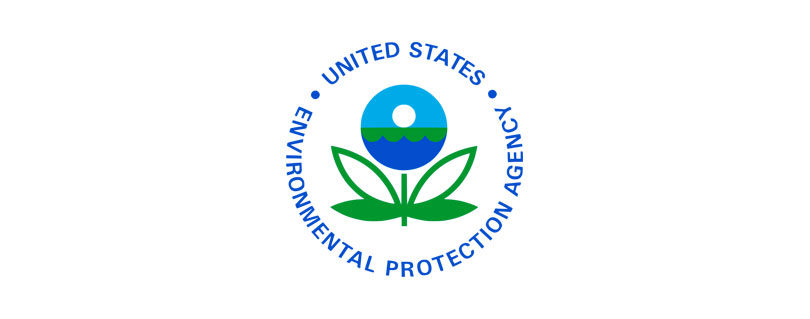EPA Selects Four Educational Organizations in New England to Receive Funding to Support Environmental Projects
Publilshed by the U.S. Environmental Protection Agency (EPA)
BOSTON (Aug. 15, 2023) – Today, the U.S. Environmental Protection Agency (EPA) announced that four organizations in New England will receive $346,000 in grants to help address career development, water and air quality issues, climate change and environmental justice. They were among 33 organizations across the country that will receive over $3.1 million in funding for projects under EPA’s Environmental Education (EE) Grants Program
“EPA is proud of the EE Grants Program and our region’s grant recipients, all of whom plan programs and activities that will help offer engaging opportunities to students from historically disadvantaged communities,” said EPA New England Regional Administrator David W Cash. “We applaud their commitment to creating a future with clean air, clean water, and a healthy planet for all.”
The following New England organizations have been selected to receive this year’s EE Grants:
- University of Connecticut, Storrs, CT
- Gulf of Maine Research Institute, Portland, ME
- Campus Compact, Lewiston, ME
- Lake Champlain Maritime Museum, Vergennes, VT
University of Connecticut – $100,000
Nicole Freidenfelds, Storrs, CT
School Based Green Infrastructure Initiative
Over the past 35 years, Connecticut has experienced a rapid increase in the amount of developed land compared to a relative loss of pervious land cover types, such as forest and agriculture. Developed land comprises impervious surfaces that result in stormwater runoff, a major source of water pollution and cause of localized flooding. To empower educators and students to address stormwater related issues within their communities, the University of Connecticut’s School Based Green Infrastructure Initiative will train 20 high school teachers through a professional development workshop focused on stormwater management and green infrastructure.
Also, students with educator support will plan and implement local projects focused on stormwater management and green infrastructure. This project targets low-income areas and communities that contain Title I schools. This program will provide educators from underserved communities with resources and instruction as they carry out customized watershed-based lessons, leveraging Next Generation Science Standards-designed curriculum created by the project team, in their classrooms. Approximately 600 high school students will use a watershed-modeling web app to analyze land use and soil data in their neighborhoods, model stormwater runoff and water-quality impacts, and compare how different conservation or development scenarios could modify runoff and water quality.
Working with undergraduate students from UConn’s Stormwater Corps, participating partner school teams will then be guided through planning and implementing local green infrastructure projects either on their school property or in the nearby community. Projects will be 1) site-specific and include tree planting, rainwater harvesting, building and installation of planter boxes, bioswales, rain gardens, green roofs, and/or permeable pavements, and 2) explicitly connected to lessons that introduce students to a variety of green infrastructure career paths, such as landscaping, plumbing, horticulture, construction, and engineering.
Gulf of Maine Research Institute – $96,000
Maggie Harvey, Portland, ME
Hemlock Stewards Northeast
This two-year project capitalizes on Gulf of Maine Research Institute’s (GMRI) expertise partnering with middle school teachers and students in authentic, place-based, participatory science investigations of Maine’s ecosystems. This project will directly support 8 middle schools from a range of communities reaching approximately 800-1,200 students from across Maine. The work will connect those schools with schools across New England engaged in related hemlock investigations and monitoring efforts.
Over the course of two years, the project will: 1) enhance teacher skill engaging students in the full environmental education continuum in the context of a participatory science investigation of hemlock forests and water quality, 2) build student understanding of ecosystem complexity and the implications of that complexity for understanding and stewarding local forests and waterways and managing invasive species, 3) connect participating students, teachers, and scientists and resource managers as they collaborate to monitor and steward forest and aquatic ecosystem health in Maine and across New England, 4) develop student and teacher knowledge about the work of scientists and resource managers and 5) move students from environmental monitors to stewards and community leaders as they participate in and engage their communities in stewardship opportunities.
Participating students will engage in the full environmental education continuum. They will develop their own knowledge and awareness as they engage in investigations in local contexts. They will think critically as they analyze their data and the data contributed by their peers and consider what their findings mean for their communities and for the region. They will leverage that powerful learning experience to bring a deeper understanding to stewardship activities and will work with project advisors to develop long-term stewardship action plans for their schools that include a range of monitoring, research, and management. This work will culminate in student-led events that increase community understanding of the hemlock forests and engage communities in stewardship activities.
Maine Campus Contact – $90,000
Sally Slovenski, Lewiston, ME
Energy Maine Environmental Education Program
The primary goal of Maine Campus Compact’s (MCC) Energy Maine project is to support environmental education (EE) efforts that address climate change/air quality and energy efficiency stewardship through problem-based curriculum and activities for Maine elementary school students in underserved communities. This project will award $4,500 sub-grants to five teams throughout Maine, each consisting of a 4th grade teacher from a diverse, low-income area and/or rural community paired with a pre-service college student and faculty advisor to implement the research-based, EE curriculum, Connect Science (CS).
With an extensive network of colleges around the state, MCC will pair higher education students with 4th grade teachers to support the implementation of this EE curriculum. Each team will attend a five-day CS training and implement a 12-week energy unit in their classroom culminating with a student-led service-learning project. Each team will organize and lead at least one EE community event to promote energy efficiency to the broader community.
Finally, teachers and pre-service teachers will lead one professional learning opportunity to share information with their peers and to expand the impacts of the Energy ME model. This grant project will reach a total of over 750 Mainers. Educational methodologies that will be utilized during the project period include: a five-day in-person/virtual training workshop for Energy ME team members, implementation of the CS Curriculum, student impact activities, continuous coaching for teams as they implement CS, community education forums led by team members to educate the public. This curriculum weaves together three key branches: science content learning on par with Next Generation Science Standards (NGSS), student-driven service learning, and social emotional learning.
Lake Champlain Maritime Museum – $60,000
Katharine Noiva, Vergennes, VT
Giant Lake Champlain Basin Map Project
The Giant Lake Champlain Basin Map Project will use Lake Champlain Maritime Museum’s one-of-a-kind 35′ x 27′ giant floor map of the Lake Champlain watershed to increase the capability of educators to use environmental education (EE) in their own teaching and increase stewardship behaviors in teachers and students. The project has 3 connected components: training for 50 teachers at 5 Title 1 schools on EE and how to use the Giant Map; Giant Map programming for students at 5 Title 1 schools led by museum staff and partners; and Giant Map programming led by teachers at 5 Title 1 schools.
The Museum will work with local partners to connect teachers with resources and provide opportunities for students to meet environmental professionals and increase their interest in careers in environmental fields. Staff from the VT Fish and Wildlife Department and the VT Department of Forests, Parks, and Recreation will partner on program development and implementation. Experiences with this unique teaching tool of the Giant Map will inspire students and teachers to develop their own sense of place that will result in stewardship behaviors and actions that support the health of the Lake Champlain watershed.
More information:
Since 1992, EPA has distributed between $2 million and $3.5 million in EE grant funding each year, for a total of over $91.3 million supporting more than 3,922 projects. The program traditionally provides financial support for projects that design, demonstrate, or disseminate environmental education practices, methods, or techniques.
Environmental Education at EPA
Read the full article at: https://www.epa.gov/newsreleases/epa-selects-four-educational-organizations-new-england-receive-funding-support




